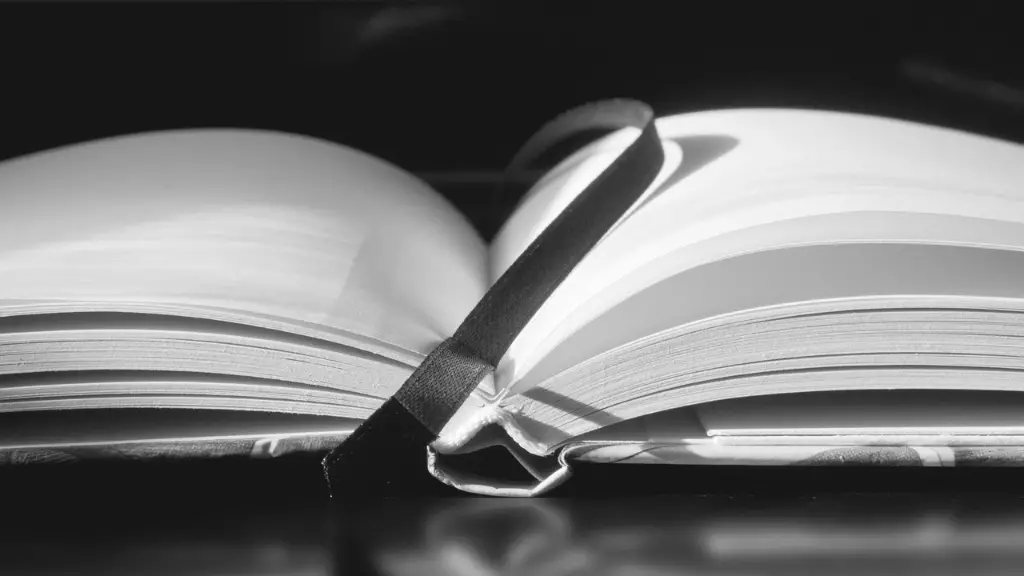Metaphysical poetry is regarded as one of the most challenging and intriguing literary forms. It is highly innovative for the time it was written and involves the use of abstract concepts, ingenious metaphors and paradoxical ideas which can be very difficult for the reader to fathom. This type of poetry flourished in the 17th century England and Ireland, with iconic poets such as John Donne, George Herbert and Andrew Marvell gaining renown for their work. Metaphysical poetry is characterised by its vivid use of images, its highly intellectual approach and its philosophical probing into the mystery of life.
This type of poetry arose as a reaction to a type of poems known as Petrarchan sonnets. These poems followed a very regular rhyme scheme, which Metaphysical poetry sought to completely subvert. Metaphysical poets did away with the traditional sonnet and instead focused on alternative forms such as prose, blank verse and riddle. A fundamental difference between Petrarchan sonnets and Metaphysical poetry is that the latter uses reason and intellectual argumentation to present the poet’s idea. This makes the poetry much more open to interpretation.
John Donne is widely considered to be the master of Metaphysical poetry. His writing style is often compared to that of an especially artful lawyer, making complex arguments in a convoluted fashion. His use of wit, paradoxes and metaphors is praised for providing insight into life’s deep mysteries. One of his most famous works is ‘A Valediction: Of Weeping’, for which Donne was famously criticised for being overly emotional and overly intellectual. Donne’s poetry was influential for its time and heavily inspired later poets such as George Herbert and Andrew Marvell.
When looking at the best way to interpret metaphysical poetry, it is important to remember that this type of poetry is heavily grounded in Christian beliefs and values. This means that the language and symbolism can often be interpreted as references to Christian theology and beliefs. Metaphysical poetry often contains analogies between physical phenomena and the phenomena of faith and faith in the divine. Therefore, it can be helpful to keep an eye out for religious references when looking to interpret the contents of a metaphysical poem.
From a technical standpoint, it is useful to remember that many of the most prominent metaphysical poets, such as Donne and Herbert, wrote their works in a complex and difficult style. They used extended metaphors, riddles and double entendres, which can be difficult for the reader to understand. For this reason, it is beneficial to refer to commentaries or secondary sources when attempting to interpret a particular work of Metaphysical poetry.
Study of Metaphysical Poetry
A study of metaphysical poetry is essential to gaining an understanding of the lyric form during the seventeenth century. Though Elizabethan songs and sonnets had flourished a century before, metaphysical poetry represents a marked departure from the previous styles of writing. Metaphysical poetry, characterised by its wit, metaphysical conceits, and bold, impressionistic language, brought a new dynamism and energy to verse. These traits, combined with their often paradoxical and intellectual nature, enables the poem to stand alongside the innovative works of the period.
This type of poetry enjoyed widespread popularity during the 17th century, particularly among the educated classes. Its structure, characterised by irregular stanzas, utilised a wide range of literary techniques and themes and could often be imbued with complex theory. Consequently, the study of metaphysical poetry can provide an insight into the intellectual climate at the time, as the poem serves as a kind of conversation piece or window into the greater intellectual and spiritual exploration of the period.
Notable poets of the metaphysical school of poetry include George Herbert, Andrew Marvell, John Donne, Richard Crashaw and Henry Vaughan, among others. Though a range of different forms of metaphysical poetry were utilised, such as odes and riddles, it is primarily known as a style of lyric poetry that focuses on meditations on the nature of existence, love, and death. This can be seen in the works of the aforementioned poets, who all present these issues in various ways.
The sheer complexity of metaphysical poetry requires the careful attention of the reader. Its rich use of imagery, symbolism and onomatopoeia, along with its structural peculiarities, requires the reader to study the poem closely and to adjust certain modes of discourse. As such, the study of this style of poetry provides both a challenge and a great sense of reward.
Metaphysical Poetry as a Tool for Self Reflection
Metaphysical poetry can act as a powerful tool for self reflection and introspection. Its unique form gives the reader the opportunity to explore their own inner workings in light of a complex web of imagery and symbolism. This is furthered by the fact that metaphysical poets often attempt to bridge the gap between the spiritual and the corporeal. Andrew Marvell’s poem ‘The Ecstasy’, for example, looks to reduce a journey through love to a journey through nature and the physical body in an attempt to gain a better understanding of what it means to be alive.
This idea of bridging the spiritual and material can be extended to the effects of metaphysical poetry on the individual. They can both provide a tool for self exploration and examination of one’s own thought processes. Furthermore, the use of symbolism in metaphysical poetry can inspire readers to consider their own understanding of the world and their place in it.
The language used by metaphysical poets must also be taken into account when considering the effects of this type of poetry on the individual. Whilst verse written in more traditional styles can be rather plain, metaphysical poetry utilises a multitude of devices and techniques to express more abstract concepts. As such, it can provide a unique opportunity to engage with dense subject matter and to develop a deeper appreciation of these concepts.
Of course, the power of metaphysical poetry ultimately comes from the reader’s ability to identify and connect with the themes and motifs presented. Their deep understanding of the works can also provide guidance in their own search for meaning, presenting them with new perspectives to consider and reflect upon.
Relationship Between Metaphysical Poetry and Religion
Though metaphysical poets do not necessarily adhere to a particular doctrine, deeply embedded within the works of these writers is an exploration of the relationship between faith and reason. This is especially evident in the works of John Donne, who was an ordained priest. Donne’s works, which contain a great deal of philosophical discourse, is an examination of the relationship between humanity’s spiritual understanding and the physical world. This can be seen in his poem ‘A Valediction: Of Weeping’, which is replete with metaphysical conceits and references to religious faith.
This is not to say that metaphysical poetry must be understood from a strictly religious standpoint. As mentioned previously, metaphysical poets instead look to bridge the gap between the physical and the spiritual, or the tangible and the intangible. Nevertheless, the works of metaphysical poets, with their often religious inferences, can provide valuable insight into their thoughts and beliefs on religion.
Moreover, the impressive level of intellectualism present in metaphysical poetry can often provide an access point for the subject matter. Many metaphysical poets were hugely knowledgeable, drawing upon the texts of philosophical and theological schools of thought in their works. This allows the readers to better comprehend their stances and opinions on religious matters.
To conclude, it can be said that Metaphysical poetry is an incredibly complex and difficult form of literature. At its core, it is an exploration of the divine through the use of language and symbolism. It challenges the reader to think deeply and provides them with a unique opportunity to ponder the mysteries of life and the universe. Metaphysical poetry can also be used as tool for self reflection and philosophical exploration, allowing the reader to gain a better understanding of themselves and the world around them.
Purpose of Metaphysical Poetry
The main purpose of metaphysical poetry is to explore the deep, metaphysical questions of existence. It is an attempt to use the stylistic conventions of poetry in order to reflect upon these questions. It is an exploration not of the concrete, but of the intangible, the abstract, the mysterious and the transcendent. Metaphysical poetry uses elegant metaphors and puns in order to bridge the gap between the physical and spiritual worlds.
Unlike traditional forms of poetry, metaphysical poetry does not necessarily take the form of verse. Metaphysical poets use a variety of forms such as the debating riddle, the apostrophe and the extended metaphor. This allows them to express ideas which may have been difficult to express within the confines of the lyric poem. This opens up a range of potential expression, as metaphysical poets are able to explore abstract concepts with a greater depth and detail than may otherwise have been possible.
Metaphysical poetry also differs from its predecessors in that it seeks to challenge the reader. It is intellectual, complex and often paradoxical. It relies on the intelligence of the reader to understand its implications and allows them to ponder the complexities of existence. In this way, it allows the reader to gain a greater insight into the mysteries of life.
Metaphysical poetry does not necessarily conform to any particular genre or style. Many metaphysical poets, such as John Donne, wrote in a very personal and idiosyncratic style which often used a range of techniques such as puns, metaphysical conceits and personal observations. This allows them to express their subjective experiences in a way which traditional forms of poetry were unable to do.
Metaphysical poetry allows poets to explore the deep mysteries of life and existence with a level of subtlety and intellectual depth which would be difficult to reproduce with prose. Its use of metaphor, wit and paradox allows it to explore the abstract with a greater detail than is possible with traditional forms of literature. As such, metaphysical poetry is a powerful and fascinating tool for exploring the deepest questions of being.
Influence of Metaphysical Poetry
The influence of metaphysical poetry can be seen in the works of many modern day writers. One of the prominent modern figures to draw heavily on the metaphysical tradition is T S Eliot, who looked to the works of Donne in particular, as inspiration. Although Eliot employed different styles and techniques, his poetry was characterised by its exploration of the deep metaphysical questions of existence. This is also evident in his essay, ‘The Metaphysical Poets’, which looks to discuss the influence of metaphysical poetry on the modern writers of his day.
The influence of metaphysical poetry can also be seen in many contemporary poets. Poets such as Alice Oswald and Denise Riley make use of the metaphysical poetic form in order to explore the deep, spiritual questions of their own existence. They often utilise puns, metaphors and new forms in order to express their innermost thoughts and feelings. The form allows them to explore the human experience with a level of subtlety and detail which could not be expressed using other forms of writing.
Metaphysical poets have also influenced the way in which writers approach literature. Their use of complex imagery and symbolism has been instrumental in the development of the novel and other genres. Through their exploration of the mysteries of life, they have inspired generations of writers to use their writing to explore the metaphysical aspects of existence. This has allowed novelists to gain a greater insight into their spiritual selves.
Finally, the influence of metaphysical poetry can be seen in the way it has opened up poetic expression to a wider audience. By finding inventive ways to express the mysteries of life, metaphysical poets have enabled readers to better understand their own spiritual experiences. In this way, metaphysical poetry has been instrumental in allowing readers to gain insight into the inexpressible aspects of life, something which would not be possible without its influence.





